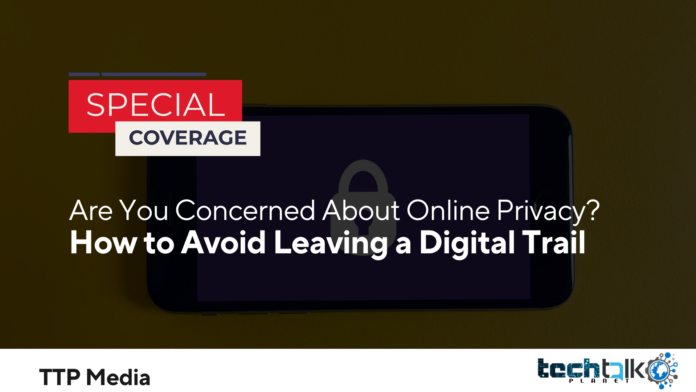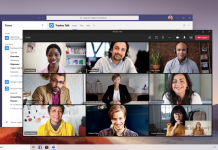
Here are some suggestions on how to best safeguard your online privacy and how a digital trace is made.
Have you ever seen an advertisement while browsing Facebook or Instagram that seems uncannily relevant to you? If so, you might be worried about leaving a digital trail: What details are you divulging? Who is the audience? What information about you are applications, businesses, and even governments holding? You might be concerned about how your online behaviour could be traced and used against you if you use social media frequently or if you deal with delicate personal concerns. I’ll go through a few techniques to prevent leaving a digital trace in this post, but first, it’s critical to comprehend how one is made in the first place. How it works is as follows:
Internet monitoring
Your online activities are being monitored. Your search history, location, installed applications, and content interactions all provide as data points for services like fraud detection and recommendation algorithms. If you’re a person dealing with mental health concerns, you could look for counselling, psychiatric drugs, or possible side effects. You can also be searching for signs of anxiety or sadness. You could unintentionally disclose information about your problems on social media or through messaging services. All of this creates a digital trail that may be used and sold by a business or app that is following you.
Smart Monitoring and user profiling: Recent developments in machine learning have greatly increased the potency of user profiling. Models can now predict who would like certain things in particular colours and sizes. There are algorithms in place that routinely calculate a user’s risk of succumbing to particular marketing strategies or being vulnerable to particular problems. If a firm gets access to enough information about you, it could be able to “predict” things like when you’ll become pregnant, your personality traits, or even your sexual orientation. You may even be added to certain watch lists or receive customised adverts thanks to this.
How then can you prevent leaving a digital footprint? Follow the helpful advice listed below:
Don’t overshare on social media.
Be careful about what you share on Twitter, Instagram, and Facebook. Be cautious about who sees your postings if you inquire about health issues. Maintain an eye on your followers and pals, and keep your privacy settings as high as possible. As a general guideline, refrain from publishing any private information or sensitive topics that you would not want to discuss with just anybody. Your friends and followers might not, even if you publish it in a closed group and use the strictest privacy settings; they might share it with their network or their accounts might be hijacked.
Turn off location-based services
Numerous applications utilise your location to provide you with better suggestions and spot fraud (for example, an unusual transaction on a credit card). Google Maps frequently saves the locations you’ve visited. There’s a chance that other programmes (like Snapchat and Instagram) are quietly exploiting your location. Make sure to regularly check your phone’s settings for location permissions and disable them for all applications.
Investigate anonymously
I would advise you to always use the anonymous or incognito mode when accessing the internet. By doing this, you can prevent your searches from being saved to the browser history. Nobody who has access to your phone, including friends, family, and law enforcement, will be able to see the search keywords you used or the websites you visited. Websites cannot monitor you because no cookies (tracking components installed by websites on your computer or phone) are saved. This stops a website from following your online behaviour across various websites and creating a profile of you. It’s crucial to keep in mind that even if other computer users won’t be able to see what you’re doing, your internet service provider (ISP) can still watch and record it.
VPN services
When using the internet, a VPN service like NordVPN or ExpressVPN keeps your activities secret and enables you to mask your IP address. Your IP can no longer be used to monitor you by your ISP or the websites you visit (they can still record your IP, but it won’t be yours!). Your IP address can be changed as often as you choose. This also successfully conceals your location because an IP reverse lookup may be used to determine your location. Additionally, it will let you access geo-restricted content. For example, if your state or nation decides to limit access to information on a certain subject, you may bypass this restriction by selecting an IP address from a different jurisdiction.
Utilize secure messaging
Make sure to use a secure messaging software when sending your pals any private information. End-to-end encryption is used by applications like WhatsApp, making it impossible for governments to eavesdrop and decrypt information sent through them. Use an app like Signal instead, which enables messages to “disappear” after a certain period of time. WhatsApp and Signal may both be downloaded and used without cost.
Sending files through links
Often, you might want to give someone a document or a medical report, but if you send it along with an email or in a conversation, it could later be used against you. Sending someone a document requires first uploading it to a safe cloud storage platform like Google Drive, OneDrive, or Dropbox. You may create secure connections using these services to send to select recipients. You can remove the link after the other person has seen the file. Clicking the link after it has been deactivated takes you nowhere. If you want to go one step further, create a brief, unremarkable link that even conceals the URL of the website you are connecting to using a URL shortener like BitLy or TinyURL.
Utilize disposable email addresses
To access material on many websites, you must sign up with your email address. If you find yourself on such a website, use a disposable email account rather than your genuine email address for verification. You may create email addresses and receive emails on websites like TempMail for a brief period of time. The number of creations is unlimited, and you may choose a different one each time. By doing this, you may avoid giving out your genuine email address, protecting your identity in the event that the website is ever compromised.
Although it is very difficult to provide total anonymity on the internet, these strategies should serve as a strong foundation. Make sure to adhere to these other digital hygiene recommended practices: Select lengthy, unpredictable passwords, avoid sharing or reusing passwords, and avoid clicking on dubious or unfamiliar sites.














































